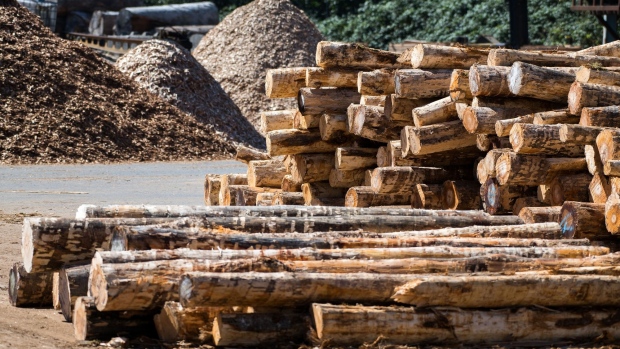Jan 25, 2021
Ikea Goes Beyond Billy Shelves in Pushing Sustainable Forestry
, Bloomberg News

(Bloomberg) -- Sweden’s Ikea is going beyond making its Billy bookshelves environmentally sustainable, setting stretch targets to help improve forest management and biodiversity across the globe.
Having reached a goal of making more than 98% of wood used in its products either FSC-certified or recycled last year, the furniture giant wants to take the lead in making responsible forest management the norm. One way is to go beyond its own supply chain, working with suppliers to ensure they offer renewable production to all of their customers, said Lena Pripp-Kovac, Inter Ikea Group’s chief sustainability officer.
“We need a really smart mix of solutions around, not only for forestry but sustainability as well,” Pripp-Kovac said in an interview. “We see that we can have a bigger sustainability impact if we work that way, rather than just securing our own.”
Ikea’s new 2030 forest agenda, released on Monday, includes targets such as ensuring that at least one-third of the Ikea wood range is made from recycled timber. It will include pushing for clear legislation and working with organizations that engage with multiple stakeholders who can develop a strong standard.
Watch: Ikea’s New Green Image Comes with Some Assembly Required (Video)
“We don’t sit on all the solutions ourselves,” Ulf Johansson, global wood supply and forestry manager at Ikea, said in an interview. “We need partnership, for governments to build infrastructure and cater for that, and we want to play a role in that but we want to do it together.”
Ikea’s ambitions also include working to enhance biodiversity to mitigate climate change and drive innovation. Johansson says the goal is to “make more furniture from every cubic meter that we use.”
The company has continued to shrink its climate footprint thanks to energy use and the sourcing of wood, according to its annual sustainability report through August 2020, also published Monday. On the food front, it now sells a plant-based alternative to its meatballs, with only 4% of the climate footprint of the traditional meat version.
The goal that was reached last year, included “a lot of influence work,” Johansson said. “Meeting with all the stakeholders, tiers in the supply chain from the forests down to our furniture manufacturers.”
Inter Ikea set aside 200 million euros ($243 million) last year to accelerate its transformation to become climate positive. About half will be allocated to reforestation projects and other land use activities to remove and store carbon, as well as supporting the restoration of degraded land.
“At this point in time we are in the explorer phase,” Johansson said. “We’re as we speak hiring specialists in South America and in Southeast Asia, so that indicates where we believe we’ll run the projects.”
Read: Ikea Plans Big Increase in Physical Stores Despite Covid Crisis
©2021 Bloomberg L.P.